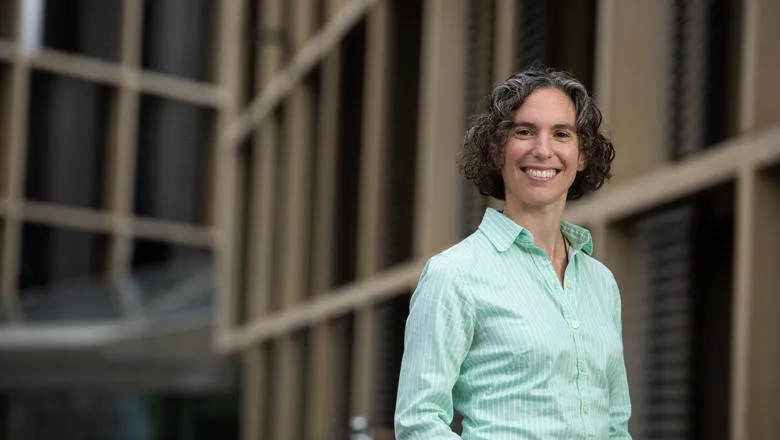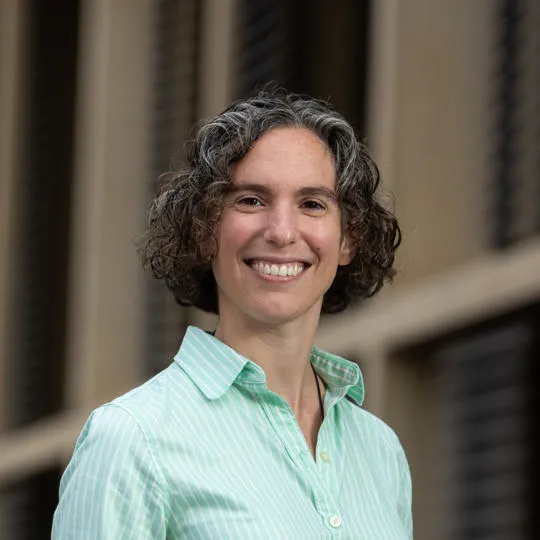My advice would be to follow your interests while ignoring stereotypes. Many students I've talked to seem to believe certain myths about mathematicians: for example, that you'll only be successful if maths is all you care about and all you do, or that you need to be a genius if you want to contribute anything meaningful to the field. These myths are false."
09 October 2022
King's women in maths: Beth Romano
Beth Romano interview

Who are you and what is your area of research?
I am Beth Romano and I am a lecturer in the Department of Mathematics. My research is in number theory and representation theory. More specifically, much of my work is about the local Langlands correspondence, a web of conjectures predicting connections between seemingly unrelated areas of mathematics. It predicts a relation between the Galois theory of local fields, which are primarily number-theoretic objects, and the theory of complex Lie groups, which are defined as geometric objects.
What do you think is holding women back from pursuing a career/degree in the maths field?
I don't have much experience outside of academia, but in academia, it's difficult to pursue a career since it takes so long to find a permanent job. After finishing a PhD, most mathematicians in my field end up doing at least two postdocs (these are temporary positions, usually for 1 - 3 years), and many people have to move to different countries for these postdocs. Even when applying for a permanent job, academics generally have to be very flexible in terms of location if they want to be successful. This makes it incredibly difficult to plan for the future, and it's a huge obstacle, for example, for people who want to start a family or people who have caring responsibilities.
What is the most unexpectedly pleasant event that has happened to you since entering mathematics?
As a PhD student, I was scooped on the problem I was working on for my thesis, but surprisingly this ended up having a positive effect on my career. The person who scooped me agreed to work with me, and we ended up contributing equally to a very pretty paper that was better than what either of us would have produced on our own.
What inspired you to take up mathematics?
I didn't focus on maths until after I finished my undergraduate degree. I had studied both English and maths at my university in America, and after I graduated, I looked for a job in publishing. I was not successful. When I tried to come up with a back-up plan, I thought about how much I enjoyed tutoring maths - I had done some peer tutoring as a student in my university's "Math Help Room." I thought I'd probably have fun teaching at the university level. To do this, I needed a PhD, which is why I decided to pursue one.
What advice would you give to someone considering studying maths?
My advice would be to follow your interests while ignoring stereotypes. Many students I've talked to seem to believe certain myths about mathematicians: for example, that you'll only be successful if maths is all you care about and all you do, or that you need to be a genius if you want to contribute anything meaningful to the field. These myths are false. Most successful mathematicians I know have other interests and hobbies outside of their work. And every mathematician gets stuck. I would really like the mathematical community to become more diverse, and this will only happen if potential students stop believing that mathematicians need to look or act a certain way.
What do you do in your spare time?
I swim in the Ladies' Pond in Hampstead Heath. I also spend a lot of time reading fiction, and I occasionally do editorial work for AGNI Magazine.

